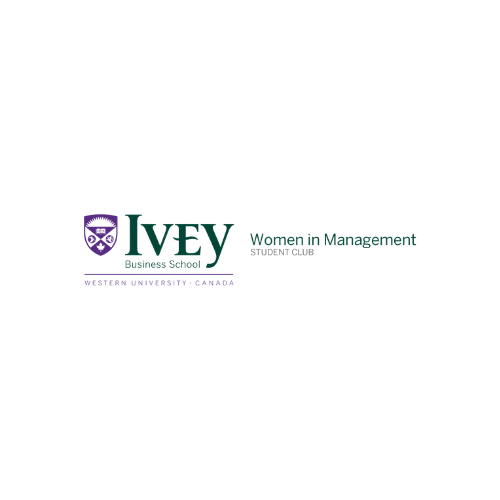Margot Ghersin: Associate Consultant, Bain and Co.
What led you to a career in consulting?
Coming into university, consulting is a field that most people are unfamiliar with. There’s a strange aura of mystery and prestige associated with the industry, but there’s also a lot of confusion around what a job in consulting can entail on the day-to-day.
I didn’t really know much about the industry until the summer before Ivey. In first and second year, I was not very involved in case competitions and business clubs. A lot of my extracurriculars were centred on mentorship; I was an RA in Saugeen and facilitated global exchanges through AIESEC.
When I started seriously considering a career path going into HBA1, I sought to learn from friends in upper years that I thought I had similar skills and interests to me. After speaking to these mentors, many charted a career path for themselves in consulting. I quickly realized that consulting would be a good fit for me as well given my strong leadership experience and communication / analytical skills.
Many coffee chats and energy-filled info sessions solidified my interest in consulting, and I ended up spending my summer after HBA1 at Bain & Company as an Associate Consultant Intern in the Private Equity Group.
What were the most influential factors that helped you break into the industry?
What is unique, but also difficult about consulting recruiting is that there are so many elements that go into the package of the applicant. You need to have high grades, a compelling story, a strong resume, and get to know people at the firms to gauge your fit. But most people already know this!
For me specifically, a very influential factor that helped me break into the industry was that my ‘story’ and ‘path’ had a clear theme and genuinely connected well to my future pursuit of consulting. In first and second year, I always made an effort to join activities I genuinely cared about like those related to mentorship and supporting cross-cultural exchange. In interviews and networking, I was able to speak candidly and with passion about my experiences, and tie them directly to ‘why consulting,’ and potentially my options after consulting, all while creating genuine relationships with consultants with similar interests.
What were some challenges you faced along the way?
Recruiting was mentally exhausting. In HBA1, I tied a lot of my self-worth to my interview outcomes and often felt like I was falling behind due to the ongoing chatter at Ivey. Sometimes, a case mock that went poorly would make me think I wasn't good enough – after reflecting with some friends after recruiting season was over, it was evident that women felt much stronger impostor syndrome in the fall months than our male friends.
We tend to doubt ourselves more and take the negatives as more powerful indicators of ability than a string of positives. This harmful mindset is still something I’m still working on in my full-time work to this day. Overall for me, during the recruiting process, it was helpful to have people outside the ‘consulting / Ivey’ circles to boost my confidence and remind me of the bigger picture.
Do you have any advice for students interested in consulting?
First, really try and understand what different types of consulting exist in the industry – it’s an extremely broad field. Are you interested in specializing in human capital? Perhaps technology? Or is it general management / strategy? Determining this will really help you make your recruiting journey more targeted.
Second, don’t tie your internship or your job offer to who you are and your abilities. I spoke about this earlier, but it is one of the most important lessons I’ve learnt. Remind yourself throughout the process that there are so many things about you that are awesome, that aren't related to whether you can do a case about an auto manufacturer or not.
Finally, its extremely important to have solid mentors in your life, who fulfill a number of different purposes - whether it’s helping you make important decisions in your professional life, or even answering silly questions like, “Should I wear red or blue to the interview?” Getting help navigating through smaller life decisions is equally important to the big ones.
How do you seek the right mentors?
When it comes to mentorship it’s really important to seek strong, and genuine relationships. Oftentimes, there isn’t much of a common connection, and it becomes tough for both mentees to truly open up and for mentors to provide quality advice. The most successful I've been in finding mentors has been when I reached out through alumni of organizations that I was already a part of, like the Leader Project, and even with the RAs and Dons who worked in my same residences. There was already a degree of familiarity there, which made forming a genuine relationship much easier.
Do you have any advice for mentors? How can we learn to provide better guidance?
Two pieces of advice: be a sounding board, and be vulnerable.
As a mentor, it's really about centering the guidance around what the mentee is looking to learn or do, and not trying to force fit solutions or specific life experiences onto them. It’s really important to start with the person, and not the solution.
Secondly, be honest about yourself and what you failed at. Adding some humor to your failures can really help mentees become more comfortable sharing their problems. I think it's just such a strange dynamic – we often look at people that have a great job, and we automatically assume that they are incredible at everything, but fail to realized that everyone has struggled in their own way.

